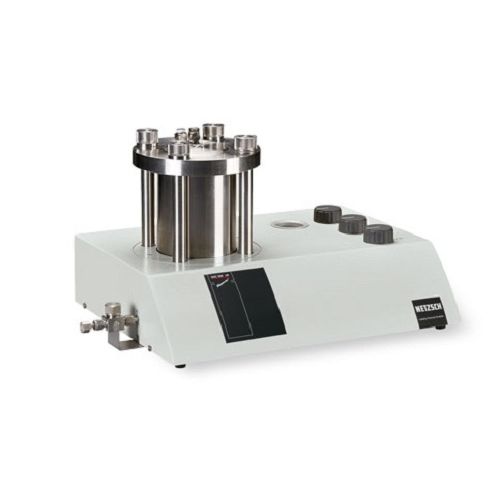Numerous physical processes and chemical reactions are influenced by the surrounding gas pressure. In practise it is therefore often necessary to conduct DSC measurements under an increased pressure.
With the high-pressure Differential Scanning Calorimeter, DSC 204 HP Phoenix®, thermal effects in a sample can be analyzed in the pressure range from vacuum to 15 MPa (150 bar) and at temperatures from -150°C to 600°C, depending on the type of gas.
The sample chamber atmosphere can be static or dynamic. The electronic pressure monitor and control, along with exact regulation of the purge gas flow, provide for excellent accuracy and reproducibility of the measurement results.
The proven CC 200 L for liquid nitrogen cooling is available for the low-temperature range.
The safety of the high-pressure DSC system has been certified through design tests and is guaranteed during operation by the appropriate safety components.
Method
Differential Scanning Calorimetry (DSC) allows not only for the determination of phase transformation temperatures but also for the quantification of transformation enthalpies.
A type of modified DSC, in which the measurement cell is installed in an autoclave (a "pressure DSC"), allows measurements to be carried out at pressures ranging from 5 kPa to 15 MPa (high-pressure DSC).
High-pressure DSC measurements can be performed in inert or reactive gas atmospheres. When an inert gas is used, the pressure dependence can be studied when the sample transformation (usually a caloric effect) is also accompanied by a volume change.


